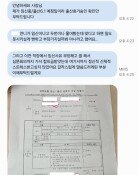Agreement between the ruling and opposition parties is a must
Agreement between the ruling and opposition parties is a must
Posted December. 09, 2019 07:35,
Updated December. 09, 2019 07:35
The so-called “4+1 coalition” had its final negotiations without the Liberty Korea Party, South Korea’s main opposition party, after agreeing to put forward a consolidated bill for next year’s budget and some fast-track bills such as for the revision of the Public Official Election Act and the High-ranking Officials’ Corruption Investigation Agency Act. The Democratic Party of Korea, the ruling party, is planning to put it to a vote in today’s National Assembly plenary session while National Assembly Speaker Moon Hee-sang said the budget and fast-track bills will be processed on Monday and Tuesday. With the upcoming general elections around the corner, the bills for the revised election act and a 500 trillion-won budget are at the risk of being passed without the agreement of the main opposition party.
The “4+1 coalition” agreed to cut the government’s budget of 513.5 trillion won by more than one trillion won. In addition, it has reportedly started working on the budget statement with the Ministry of Economy and Finance. Not having the main opposition on board, the coalition is an expedient. It is difficult to believe that the National Assembly is trying to bypass the Special Committee on Budget and Accounts in order to expedite the passing of the budget after missing the legal deadline for submitting the budget plan, which was due on Monday. This is especially worrying because many have already raised concerns about the budget being favorable to certain parties in the run up to the general elections. If the coalition ignores this concern and passes the bill “behind closed doors” without leaving any records, it will come under the criticism that the ruling party and opposition parties except for the Liberty Korea Party colluded in budgeting for the upcoming election.
A successor to Na Kyung-won, the former floor leader for the Liberty Korea Party, will be elected today. This should serve as an opportunity for the ruling and main opposition parties to thaw and start negotiations. All the previous bills for the election act including the proportional representation bill have always been revised based on the agreement between the ruling and main opposition parties as the act sets out rules for elections that reflect people’s voices. If it opts to do otherwise this time, it will be faced with criticism that it traded the number of seats with minor opposition parties in order to pass the High-ranking Officials’ Corruption Investigation Agency Act. The budget also needs more time to be evaluated more thoroughly. The ruling party should stop the law-making process that excludes the first opposition party while the Liberty Korea Party should come up with valid alternatives and be ready to negotiate.
Headline News
- N. Korea launches cyberattacks on S. Korea's defense companies
- Major university hospital professors consider a day off each week
- Italy suffers from fiscal deficits from ‘Super Bonus’ scheme
- Inter Milan secures 20th Serie A title, surpassing AC Milan
- Ruling and opposition prioritize spending amid tax revenue shortfalls







